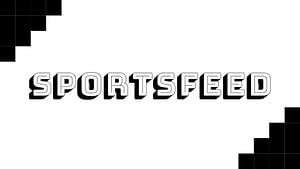Marc Guéhi Avoids FA Charge for ‘I Love Jesus’ Message on Rainbow Armband
In a story that has sparked plenty of conversation both on and off the pitch, Crystal Palace and England center-back Marc Guéhi will not face formal disciplinary action from the English Football Association (FA) after writing “I love Jesus” on his rainbow-colored captain’s armband during Saturday’s 1-1 draw against Newcastle United. The decision has drawn mixed reactions from fans, pundits, and players alike, as it touches on the intersection of personal beliefs and football’s inclusivity campaigns.
The FA confirmed that while Guéhi and Crystal Palace have been reminded of their responsibilities under the governing body’s kit and advertising regulations, no formal charges will be brought against the 24-year-old defender or his club. This means Guéhi avoids potential penalties such as a suspension or fine, which could have been levied under Rule A4 of the FA’s regulations.
What Happened?
Last weekend, all 20 Premier League clubs were issued rainbow-colored captain’s armbands as part of Stonewall’s Rainbow Laces campaign, which supports the LGBTQ+ community. The campaign has become a staple in English football, symbolizing the sport’s commitment to inclusivity and diversity. However, Guéhi, a devout Christian, chose to personalize his armband by writing “I love Jesus” on it—a move that some viewed as a potential conflict with the campaign’s message.
According to the FA’s kit rules, “the appearance on, or incorporation in, any item of Clothing … Any political or religious message” is strictly prohibited. The rules also state that “disciplinary action may be taken” for any breach of these regulations. A modification to the law last summer further clarified that all captains “must wear an armband which is simple and conforms to the requirements of Law 4 relating to slogans, statements, images and advertising.”
Despite these clear guidelines, the FA has opted not to pursue formal action against Guéhi. Instead, the governing body has issued a reminder to both the player and his club about adhering to the rules in the future.
Why No Charge?
While some might have expected a harsher response, the FA’s decision not to charge Guéhi may stem from the complexity of the situation. Writing a religious message on an armband supporting LGBTQ+ issues could have been seen as an aggravating factor, but the FA appears to have taken a more measured approach, perhaps to avoid escalating tensions or alienating any particular group.
It’s worth noting that Guéhi was not the only Premier League captain to make headlines regarding the rainbow armband. Ipswich Town captain Sam Morsy, a practicing Muslim, chose not to wear the rainbow armband at all, opting instead for the standard black version. The FA has stated that Morsy’s decision does not contravene any kit regulations and is considered a personal choice between the player and his club.
Club Reactions
In response to the situation, Ipswich Town released a statement emphasizing their commitment to inclusivity while respecting Morsy’s religious beliefs. “Ipswich Town Football Club is committed to being a fully inclusive club that welcomes everyone,” the statement read. “At the same time, we respect the decision of our captain Sam Morsy, who has chosen not to wear the rainbow captain’s armband due to his religious beliefs. We will continue to grow an environment where all are valued and respected, both on and off the pitch.”
Crystal Palace has not yet issued a public statement regarding Guéhi’s actions, but the FA’s decision to avoid formal charges likely comes as a relief to the club, which is currently navigating a competitive Premier League season.
What Does This Mean for Football?
The incident has reignited debates about the balance between personal expression and collective campaigns in football. While the sport has made significant strides in promoting inclusivity, situations like this highlight the challenges of accommodating diverse beliefs within a unified message.
Here are some key takeaways from the situation:
- The FA’s kit regulations explicitly prohibit political or religious messages on clothing, but enforcement can vary depending on context.
- Guéhi’s decision to write “I love Jesus” on the armband has sparked discussions about the role of personal faith in public campaigns.
- Other players, like Sam Morsy, have also made personal choices regarding the rainbow armband, further complicating the narrative.
As football continues to navigate these complex issues, one thing is clear: the sport’s efforts to promote inclusivity must also account for the diverse backgrounds and beliefs of its players. Whether this incident will lead to further clarifications in the FA’s regulations remains to be seen, but for now, Guéhi and Crystal Palace can breathe a sigh of relief.
What do you think about the FA’s decision? Should players have more freedom to express their beliefs, or should the rules be enforced more strictly? Let us know your thoughts!
Originally Written by: Mark Ogden





















